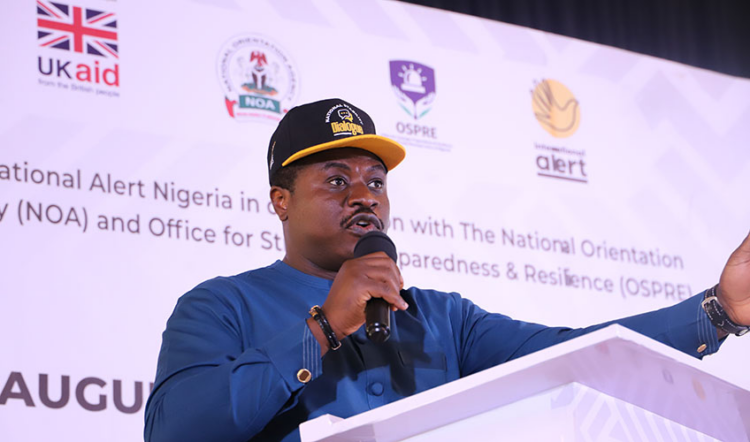Country director, International Alert, Dr Paul Nyulaku, has asserted that Nigeria’s preference for securitised response to conflict rather than peacebuilding is responsible for the escalation of crises despite sustained efforts at peace-building.
Nyulaku spoke at the induction of 50 members into the Institute for Peace and Conflict Resolution (IPCR) in Abuja.
The expert who has been involved in the negotiation and mediation of conflicts for the past two decades, said Nigeria’s option of deploying security (Nigerian Army) first, in the scenes of conflict, in areas where peace building should prevail, had proven most ineffective in ensuring sustainable peace.
The alternative, he said, is to adopt a multitrack approach to peace building, which ensures comprehensive response to conflict and violence.
Also, the director, Internal Conflict Prevention and Resolution at IPCR, Dr Emmanuel Mamman, expressed delight at witnessing an increase in the number of peace-builders in the IPCR family.
“The more we are the merrier, and the more we will be successful in what we do,” he said.
Mamman, who represented the DG of IPCR, Joseph Ochogwu at the event, urged the participants to think and act with peace at the back of their minds, and to review and address the challenges in their various environments that are threats to peace.
“Go and become good ambassadors for peace,” Mamman said.
Nyulaku further said, “We need to have a more comprehensive response as opposed to securitized response, which is just a little component of what a comprehensive response should be.
We need to look at humanitarian response, development response, and making sure that different groups that are divided, efforts are made to bring them together in order to consolidate peace, rather than the sort of peace we achieve by forcing people not to fight. We need to begin from understanding the reasons why they are fighting in the first place, so that we will have lasting peace.
“We need to work closely with security agencies, the academia, religious bodies and community leaders. All these efforts put together will lead to something more concrete and will help us to deal with the insecurity in the country rather than working in silos.”
He urged the participants of the fifth session of the IPCR Negotiation and Mediation Skills course, that in the course of brokering peace and mediating conflict, they should ensure their legitimacy for peacebuilding in any given operation.
“What is also very important is your legitimacy with the conflicting parties or communities. The people you want to mediate with do they want you to be the right person to do it? You need to build this legitimacy, because at the heart of that is to protect yourself from whatever risk you find in the field.
“As a peace builder, don’t go to mediate peace in a context where there is ongoing war, and where you don’t have security cover. You need to understand that as a peacebuilder, you can get in the crossfire.
“To avoid this, do a very detailed security assessment the basis of which you enter into a space.”











